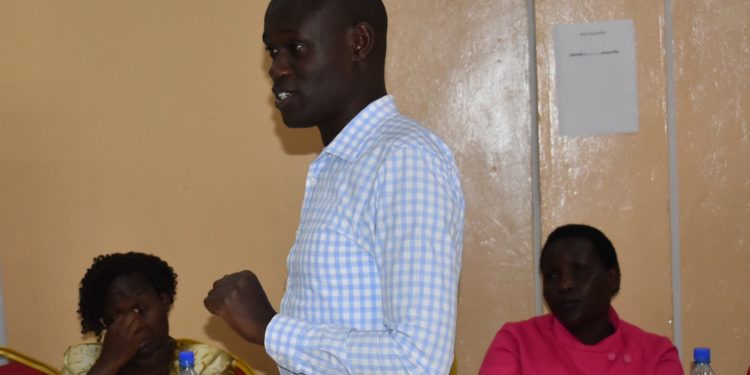The Informal sector employs majority of Ugandans, and according to the most recent report- ‘Assessment of the drivers of the shadow economy and tax implications in Uganda’, 49.8 per cent of Uganda’s youth are employed but 91 per cent of those employed are in informal sector, mostly in agriculture, without regular pay or written agreement.
That simply means 91 per cent of the 49.8 get money from substantial economic activities that go untaxed. And according to Dr Ismail Kintu a lecturer at Makerere University School of Business and Management Sciences (COBAMS), such a structure of running business is termed as Shadow economy.
“Shadow Economy is comprising all market-based, lawful production or trade of goods and services deliberately concealed from public authorities to evade either payment of income, value-added or other taxes, or social security contributions; to get around the certain labour market standards, such as; minimum wage, maximum working hours, or safety standards; or to avoid compliance with administrative procedures,” Dr Kintu said.
Also according to reports from Uganda Revenue Authority (URA), in the shadow economy, businesses lack formal registration with local or national authorities and at times such businesses are referred to as shadow, clandestine, illegal, unreported and parallel.
Despite tax being a quid pro quo, in Uganda, out of 45 million people 10 million are employed. However only 1.5 million people do pay taxes and mostly these come from the formal sector, civil servants and a few businesses from the informal sector.
During the launch of a research study on the drivers of the shadow economy and its tax implications in Uganda, Dr Kintu disclosed that even professionals such as lawyers, doctors or engineers participate in evading taxes.
In his presentation at Makerere University on Friday, Dr Kintu, who conducted the research said that one of the great drivers as to why most informal sector businesses operate in a shadow economy is because of high tax rates which force people to hide activities since they can hardly have disposable income after paying taxes. Also, the unfairness in tax administration cannot motivate anyone to declare all his incomes.
“The other factor is based on business challenges, most business people in the informal sector don’t keep records. Over 39.73 per cent have improper record keeping 21.92 per cent don’t do bookkeeping. While 8.22 per cent are earning little income from business operations where 5.48 per cent under-declare their income through other non-business-related items,” he said.
Dr Kintu added that poor service delivery by the government has also contributed a lot to send people into evading taxes.
“Tax-payer do not find a reason to comply if they do not find proper health care services, disorganized education system, poor infrastructure. They perceive taxes would have not been avoided if the government is providing quality services,” he said, adding that also corruption in government has played a big role in causing this problem.
“Tax-payers read about the misappropriated funds by government officers extracted from Auditor General reports. They get no morale of complying for government officers to embezzle. Worst negligible action is taken against the most corrupt,” he added.
The study reveals that inappropriate tax education mechanisms imply that very few tax-payers receive tax-related information. They will always act out of tax ignorance. This makes tax administration difficult. Also, failure to link government departments and local governments to the URA system creates disconnect within the tax administration system since it becomes harder to expand the tax base.
The slow pace at which the judicial system settling tax disputes between URA and taxpayers has created a lot of scepticism and disbelief among tax-payers. Such mistrust created may result in future non-compliance and could fuel corruption.
However, among the remedy, the study outlined that URA and government must take into consideration to curb the challenge of the shadow economy is URA to work with academic institutions in disseminating tax-related information to provide tax education mileage.
Also, URA has to re-orient staff with customer care packages. Every employee including experiential recruits have to undergo this training because customers expect support from anyone in URA.
Do you have a story in your community or an opinion to share with us: Email us at editorial@watchdoguganda.com













